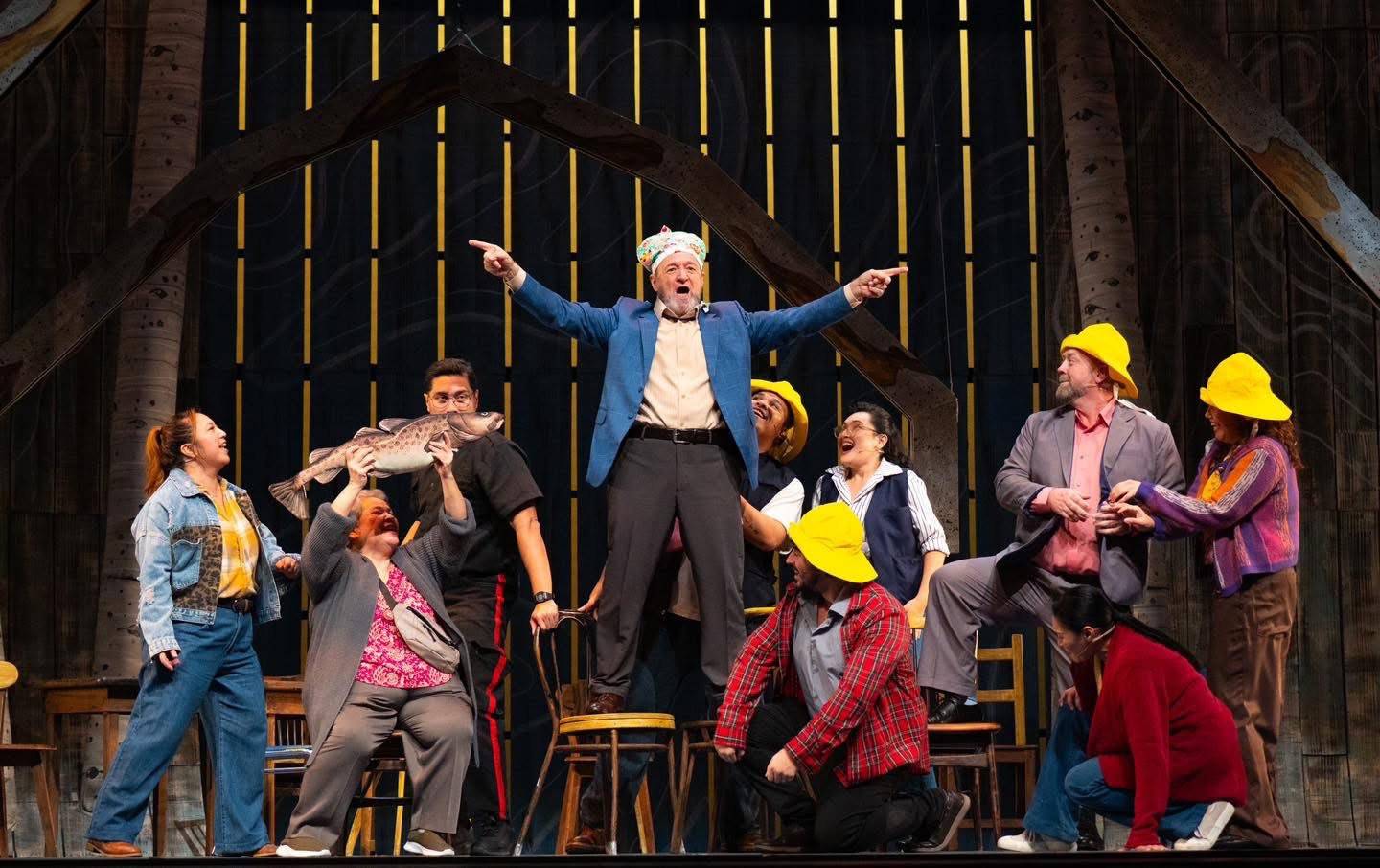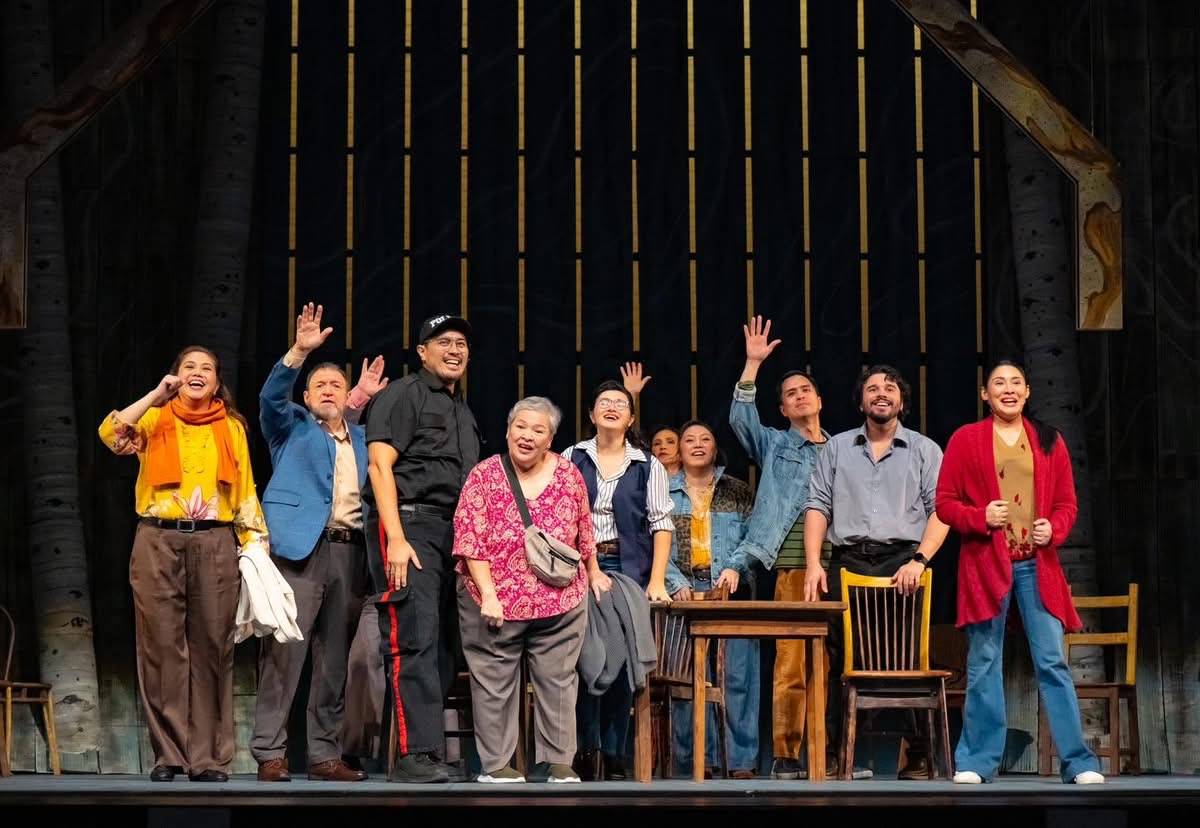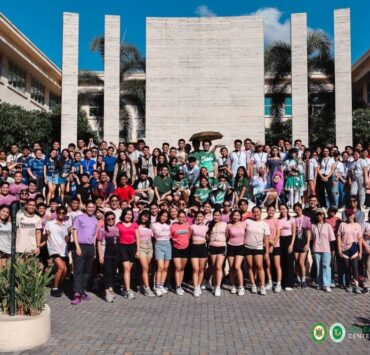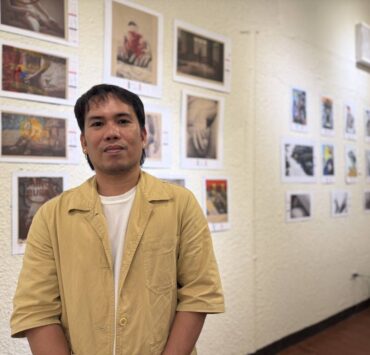Not revolutionary, but restorative, theater

There’s something uniquely aggravating about flight delays or cancellations—those minor disruptions that throw your plans into disarray. But there’s a different magnitude of inconvenience when you’re midair and your pilot announces an emergency reroute to a completely different country.
Now, imagine a musical about that disruption.
This premise—deceptively simple—anchors GMG Productions’ latest offering to Filipino audiences: the Philippine staging of the Canadian-born musical “Come From Away,” now running at the Samsung Performing Arts Theater in Circuit Makati. But what begins as a story of logistical inconvenience quickly reveals itself to be a powerful and profoundly human story about kindness, connection, and the extraordinary generosity that arises in the face of crisis.
Set during the chaotic aftermath of the 9/11 terrorist attacks in New York, “Come From Away” tells the true story of how nearly 7,000 passengers from 38 planes were rerouted to the remote town of Gander, Newfoundland in Canada, when American airspace was closed. Over five days, Gander’s population nearly doubled—and rather than descend into panic, the people of Gander responded with compassion.
That compassion is what this production delivers with grace. And right now, with the political noise, climate anxiety, and looming geopolitical tensions hanging over us, “Come From Away” feels like a much-needed warm hug.
The show doesn’t present itself like a conventional musical—no traditional lead, no grand villain. At times, it feels more like a straight play with songs: fast-paced dialogue, tight scenes, and ensemble-driven work that leaves no room for ego. And that, precisely, is its magic. The heartwarming storytelling sneaks up on you, grounding you in a world where kindness is habitual rather than performative. And frankly, “Come From Away” is disarmingly funny.
Bold move
This also marks a first for GMG Productions, which has previously brought in touring international casts for Broadway giants like “The Sound of Music,” “Miss Saigon,” and “Hamilton.” But this time, “Come From Away” is performed by a mostly Filipino cast and creative team—a bold move, considering the title doesn’t have the same marquee power as those aforementioned shows. Was it a risk? Certainly. But one that paid off.
The ensemble cast—branded by some as the “Avengers of Philippine theater”—is stacked with veterans and vocal powerhouses: Menchu Lauchengco-Yulo, Gian Magdangal, Carla Guevara Laforteza, Sheila Francisco, Garrett Bolden, Caisa Borromeo, Cath Azanza-Dy, and Becca Coates, among others. And yes, they do meet expectations. But more than that, they dissolve into the fabric of the show so organically that it no longer feels like an all-star gathering. It feels like real people responding to extraordinary circumstances.

And if there’s anything else worth taking home from this production, it’s this simple but resounding truth: Filipinos are remarkably talented. That’s a known fact, yes—but “Come From Away” nudges it to us with renewed force. There is something luminous that happens when Filipino performers are given space to stand shoulder to shoulder with their international counterparts: they don’t just keep up—they shine.
And shine they do. Each of the 12 actors plays multiple roles, shifting seamlessly between stranded, irked passengers and the townsfolk of Gander. The transitions are crisp and exacting—a feat of acting precision and technical direction.
Thanks in part to dialect coach Joel Goldes, who was brought in from the original Broadway production, the accents are sharp and consistent, helping distinguish the multiplicity of characters. Not only do the actors master the musical’s tricky vocal rhythms and accents, they do so while slipping in and out of characters without dropping a beat.
A journalist becomes a flight attendant. A teacher becomes a pilot. You believe all of them. You know you’re in the presence of great theater when the same actor can disappear into different lives within seconds, and you never once question it.
Standouts
If there are standouts in an ensemble show designed to be democratic, two rise slightly above: Topper Fabregas, whose comic timing and emotional agility as Kevin (and others) are pitch-perfect; and Yulo, who commands the stage in the show’s emotional centerpiece, “Me and the Sky”–a solo that traces a female pilot’s rise in a male-dominated profession. Yulo’s gravitas is palpable, and when she sings, the theater holds its breath.
And yet, “Come From Away” isn’t just about feel-good humanity. It brushes up against deeper issues with nuance and restraint: xenophobia, queer acceptance, gender roles, animal welfare. It doesn’t sermonize. It trusts the audience to recognize these complexities and sit with them.
Technically, the production is lean but purposeful. Director Michael Williams’ staging opts for function over flash, allowing the story to take center stage. Kayla Teodoro’s set design relies on minimal props and a clever choreography of multipurpose chairs, while Hershee Tantiado’s understated costume shifts and Harry Tabuena’s subdued lighting conjure airports, town halls, and bars with theatrical sleight of hand. The transitions are fast but never frantic. And the pacing? Relentless in the best way.
If there is a takeaway, it is this: “Come From Away” reminds us that even in moments of immense uncertainty, kindness is a choice. And that choice, repeated over and over, is what rebuilds the world after disaster. This isn’t revolutionary theater, no. But it’s restorative theater. In a time when division often makes better headlines, this one dares to tell a story about people showing up for each other.
This may not be the most commercially flashy title in GMG’s upcoming season—they have “Dear Evan Hansen” opening in September—but its heart beats stronger than most. So if you’ve ever wondered how humanity survives in times of rupture, or who we become after the unthinkable–”Come From Away” has an answer. And it’s waiting for you in the dark, in a theater, with 12 actors playing over 80 roles and reminding us that kindness, too, is a kind of heroism.
Come for the music. Stay for the message. And leave reminded that even strangers can become family–if only we choose to be human first.

















